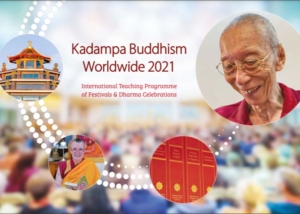Overcoming fears
Fear, a continual presence in our lives
Our life is inhabited by fear. We know very well some of our manifest fears, such as the fear of spiders, snakes or the void. These fears make us act or rather react quickly to no longer be confronted with the situation. Others are more tenuous, less visible, such as fear of the gaze of others, fear of judgement, fear of not being up to it, fear of being alone, fear of not being loved( e). We do not necessarily recognize them as such, but as for the previous ones, we have built ourselves, over time, behaviors that aim to avoid confronting these fears. Finally, we have a universal fear, which is that of suffering. We want to avoid all kinds of suffering and for this we put a lot of energy into transforming our external conditions. For example, to avoid the pain of feeling alone, we can choose to stay in a relationship, even if it hurts us.
Overcome our fears by changing our view of ourselves
Where does fear come from? Fear arises from our impression that we will not be able to cope with a situation (external or internal). For example, we can say to ourselves, I can’t deal with loneliness, I can’t deal with a spider on my arm, so we generate a feeling of fear. Fear is intimately linked to our lack of self-confidence and the limited vision we have of ourselves. These negative feelings make us believe that we are unable to remain calm and constructive internally in the face of unpleasant situations, as they appear to us. We are worried about having to deal with all the unpleasant feelings and we are convinced inside that we will not be able to deal with them. This limited view of ourselves is our greatest enemy. Yet we all have at hand a mind whose deep nature is to be calm, perfectly peaceful, and filled with love and bliss. This is our potential, our ‘Buddha Seed’ When we are connected to this source of peace, everything is possible for us and no limitations exist. We already experience it when, for example, we have to speak in public (or any other situation that worries us a little) and we take a few very deep breaths to calm ourselves, to de-stress. These few breaths bring us closer to our deep nature, which is to be perfectly peaceful and serene. They make us able to cope with the situation. The external situation has not changed, but the spirit we are connected to now is more trusting. We are connected to a better place. If a few breaths are capable of producing such an effect, imagine the effect we could achieve if we practiced daily to deepen our connection with our pure nature and maintain it. In Buddhism, this training is called take refuge. That is to say, go connect to our pure nature, sheltered from the hustle and bustle.
For whom are we afraid?
Usually we think ‘it’s obvious I’m afraid for Me. There is Me on one side and the rest of the world around. A world that I must endure. I have to avoid the pitfalls, all those situations that could make me suffer and gather all the good conditions that will allow me to be happy’
The Buddhist teachings invite us to question ourselves on this vision of the way in which we and the world exist. Currently, we believe that we exist separate from the rest of the world. We can think, my spirit is inside my body and this is Me and my spirit has nothing to do with the way I exist. The rest of the world is outside, separated, books, objects, other people seem to be on the outside and we have absolutely no sense that our minds have anything to do with the way the world exists. We feel that all individuals experience the same world, tangible, solid, irretrievably existing from its own side. Buddha said that all phenomena are dream-like. In transform your life , Geshe Kelsang Gyatso gives the following example “If we dream of an elephant, the elephant appears clearly, in its smallest details, we can see it, hear it, smell it and touch it, but when we we wake up, we realize that the elephant was only an appearance in our mind”. We don’t ask ourselves, Where did the elephant go? because we understand that it was just a projection of our mind, with no existence outside of our mind. What if our world existed the same way? That is to say, as a mere appearance to our mind of the waking state. Sometimes we can dream and be aware that we are dreaming. People and situations appear to us, but we know that this is all just a dream. At this moment, all our fears disappear. That threatening person from the previous moment is no longer so. In an instant, we have transformed it since if everything is only appearance, simple thought, and that we are aware of it then we can simply think differently.
The lack of inherent existence of our world and ourselves is called emptiness. Emptiness does not say that things and people do not exist, it holds that things and people do not exist the way they appear to us. We believe they exist independently of our minds, while we are completely involved in how they exist. When we have fully realized this, all our fears will have disappeared, we will be totally free from our fears, stress, anxieties, terrors…
Not all fears are harmful to us
While waiting for that moment, it is important to see that not all fears are harmful. Fear is an emotion that allows us to avoid putting ourselves in danger. For example, it will prevent us from falling by approaching too close to the edge of the cliff. Certain fears, based on wisdom, will give us the energy to continue on the spiritual path or to continue to seek to realize emptiness, for example, when the subject seems difficult to us. The fear of dying with an uncontrolled mind, the fear of having to endlessly repeat the cycle of suffering life after life without any choice, the fear of the suffering to come which understands the law of karma allows us to resist the temptation to kill, steal, lie…
Fear is not inevitable and is most often a bad adviser. It is therefore our responsibility for our own well-being to cultivate our trust in our pure nature and to experience it. We can, in the morning when we wake up, take pleasure in feeling connected to our pure nature before starting our day. And in the evening, before falling asleep, we can allow ourselves to feel peaceful and let go of the hustle and bustle of the day by connecting to our beautiful nature through simple breathing.



